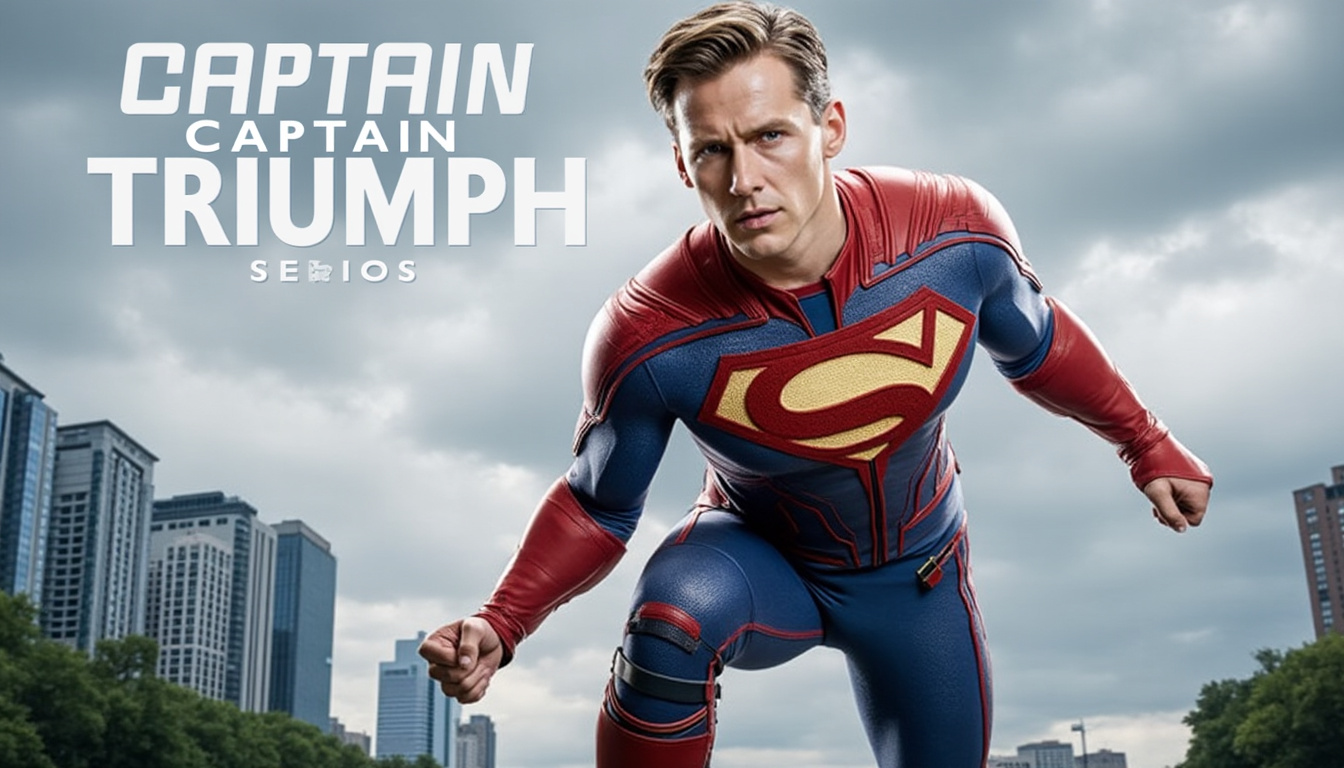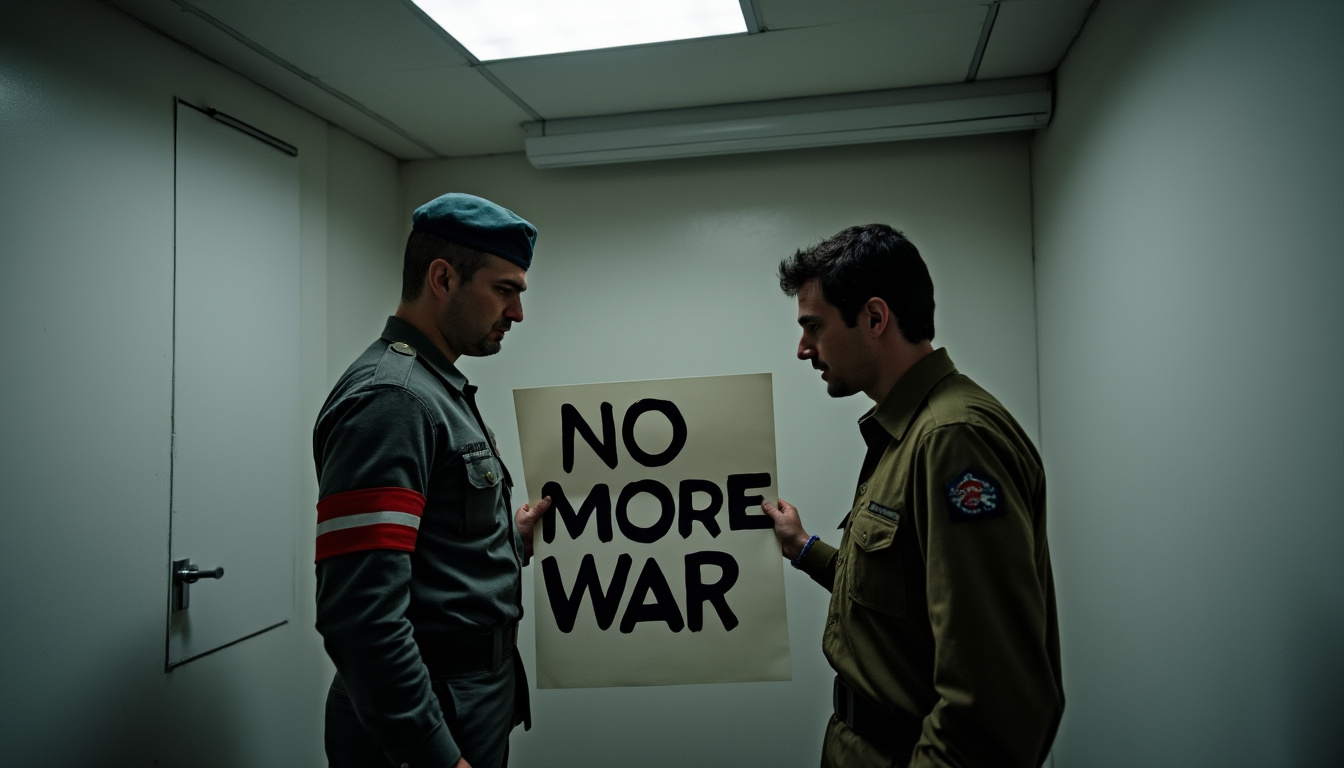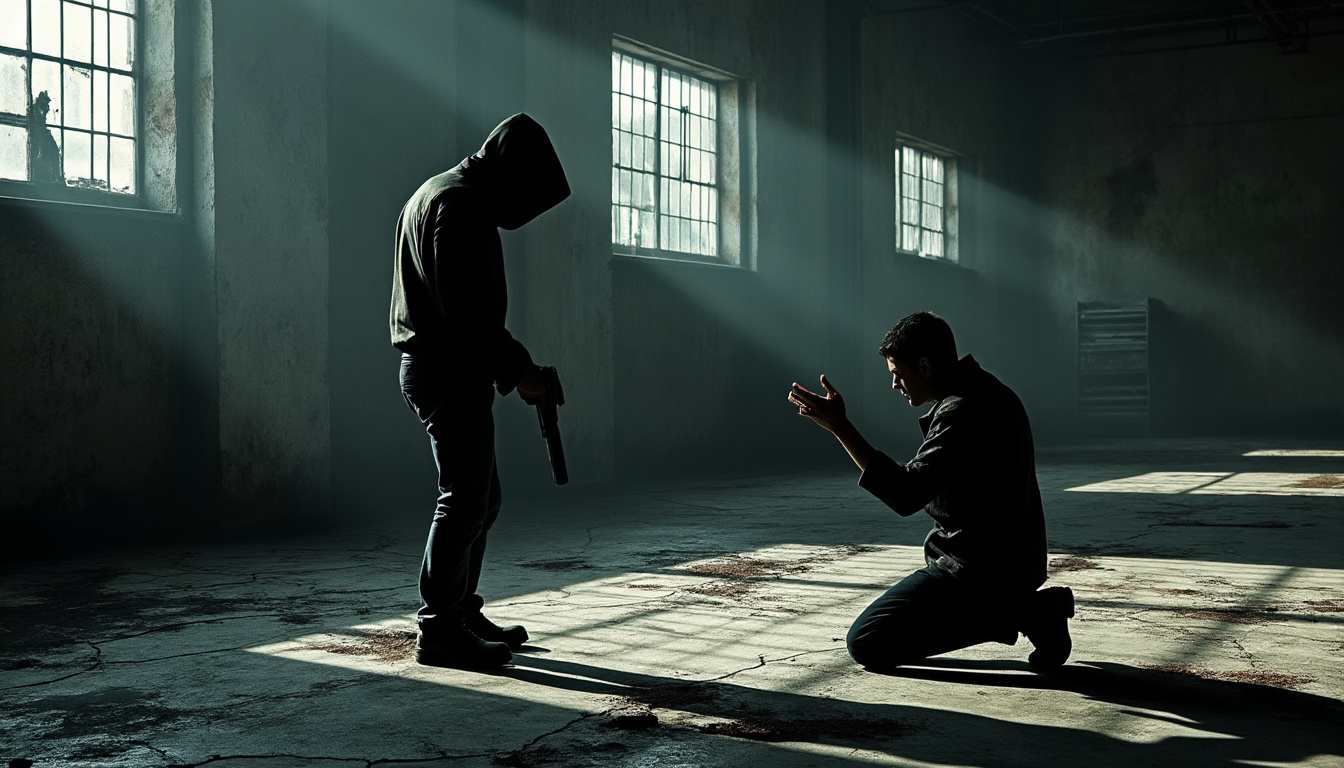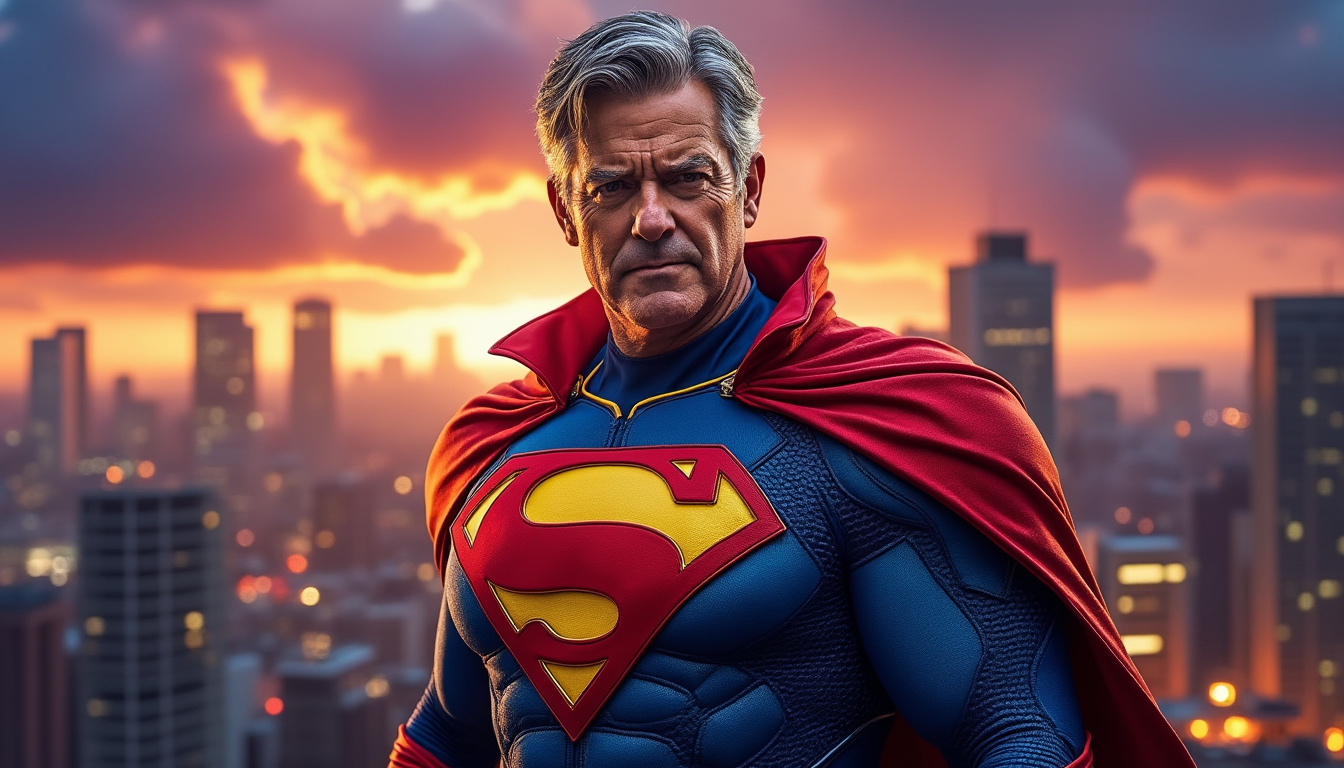The latest season of Peacemaker has introduced an unexpected twist in the form of Captain Triumph, a character that could be pivotal in shaping the narrative as the story unfolds. Delving into the origins of Captain Triumph and the implications of his character for Peacemaker’s storyline creates numerous avenues for discussion and exploration. With the unique vision of James Gunn at the helm, Captain Triumph offers a fresh, albeit controversial, antagonist that invites both curiosity and concern. This article investigates who Captain Triumph is, his character evolution, and the broader themes intertwined with his narrative journey in Peacemaker Season 2.
Captain Triumph’s Introduction in Peacemaker Season 2
In Peacemaker Season 2, Captain Triumph, played by David Denman, brings a complex energy to the storyline, creating a contrast to the titular character played by John Cena. The show’s narrative cleverly intertwines themes of morality, family dynamics, and ideological conflict. The character of Captain Triumph is particularly significant as he emerges from an alternate Earth, known as Earth-X, where his backstory diverges significantly from the Captain Triumph of the DC Comics. Rather than being a straightforward hero, the show presents him as a deeply flawed character shaped by his experiences in a dystopian society.

During the premiere titled “The Ties That Grind,” we witness Peacemaker discovering a portal to this alternate reality where he encounters a version of his brother, Keith Smith. The introduction of this sibling dynamic enriches the narrative by highlighting themes of loss and the effects of family trauma. The trauma experienced by Keith during their upbringing, particularly in an abusive household, is utilized as a narrative device, prompting reflections on how different environments shape one’s ethics and choices.
The Backstory of Captain Triumph
Captain Triumph’s comic book roots trace back to the Golden Age of Comics, first introduced in Crack Comics #27 in 1943. Originally, he was portrayed as a patriotic superhero with incredible powers, including super strength and flight. However, the adaptation of this character in Peacemaker Season 2 is an inventive reimagining, wherein the character dons a more complex persona with darker undertones. The duality of triumph and failure, encountering personal and ideological challenges, paints a portrait of a character grappling with a fragile sense of identity.
The show’s version of Captain Triumph, steeped in white supremacist ideology due to historical events on Earth-X, encapsulates a critical examination of moral ambiguity. This transformation allows for a deeper exploration of villainy, suggesting that ideologies can warp individuals to become something they once stood against. His confrontation with Peacemaker sets a stage not only for physical battles but also for ideological ones, where the lines between right and wrong grow ever hazy.
| Aspect | Original Comic Captain Triumph | Peacemaker Captain Triumph |
|---|---|---|
| Backstory | Simplistic heroics | Complex, trauma-driven |
| Motivation | Patriotism | Ideological revenge |
| Character Arc | Heroic adventures | Villain’s descent |
Captain Triumph and the Ideological Conflict
The appearance of Captain Triumph generates an intense ideological conflict that echoes real-world debates about nationalism, morality, and brotherhood. Throughout Season 2, this clash is illustrated through the complexities of Keith Smith’s character as he battles feelings of betrayal and resentment towards his brother Chris, the Peacemaker. This dynamic is intensified by the revelation that Chris was not only a hero but implicated in the death of his Earth-X counterpart, which serves as a major turning point in their relationship.

As the narrative unfolds, Captain Triumph’s motivations become increasingly driven by a need for vengeance and proving his superiority over Peacemaker. The series utilizes this revenge arc to delve into deeper questions of morality: Can one justify actions taken in the name of love or revenge? How does the past, particularly traumatic experiences, motivate individuals to embrace or reject family ties?
- Captain Triumph’s journey is marked by:
- Ingrained ideological beliefs from his alternate Earth.
- A personal vendetta against his brother Peacemaker.
- A spiraling descent into violence as a means of coping.
Key moments foster a space for audience reflection, making characters like Captain Triumph relatable yet complex. The element of brotherhood previously explored in Peacemaker is now challenged by bitter rivalry, raising the stakes for all characters involved. Peacemaker, faced with this existential crisis, must come to terms with his own actions while confronting the very legacy he’s built.
The Role of Violence and Redemption
The themes of violence and the potential for redemption are crucial in understanding character motivations in Peacemaker. As Captain Triumph spirals deeper into a rage-fueled vendetta, Peacemaker must grapple with the repercussions of violence that often permeates the superhero genre. This cyclical nature of retaliation reveals a poignant commentary on how violence begets violence, questioning whether true redemption is achievable.
Vigilante, another character within the show, further complicates this narrative. His own prioritization of justice often skews moral clarity, serving as a foil to both the Captain and Peacemaker, pushing the boundaries of right and wrong. Scenes showcasing their interactions shed light on the blurred lines between heroism and villainy, illustrating how easily one can slip from one side to the other.
Speculations on Captain Triumph’s Fate
As Peacemaker Season 2 nears its conclusion, the potential for Captain Triumph to emerge as a final villain intensifies the anticipation surrounding the showdown between him and Peacemaker. With Episode 7 setting the stage for a climactic meeting, fans speculate about the outcome of this brotherly conflict. Keith’s arc raises critical questions about redemption and whether some characters can transcend their villainous paths or if they are forever trapped by their ideologies.

The penultimate episode underscores the repercussions of choices made, with Captain Triumph confronting the confrontation of unresolved familial tension. There is a growing tension as the storyline hints at an all-out battle in the finale, one driven by not just physical confrontation but loaded ethical dilemmas. The bloody history between both characters sets a heavy emotional tone, creating anticipation for how this struggle will resolve.
Audience Reactions and Theoretical Expectations
The response from audiences has been overwhelmingly engaged, with discussions across social media platforms debating the ramifications of Captain Triumph’s character. Fans have speculated on numerous theories ranging from Captain Triumph’s redemption arc to his ultimate demise at the hands of Peacemaker. Online forums buzz with theories on possible outcomes, intertwining both excitement and dread for what is yet to come.
- Key theories circulating among fans include:
- The resurrection of Captain Triumph in a potential Season 3.
- Possibility of a larger conflict involving the Justice Society of America.
- The introduction of new villains emerging from this ideological conflict.
As viewers watch the remaining episodes, the intricate character relationships and moral quandaries continue to resonate, serving as a compelling reminder of the complexities of human nature. What once seemed a straightforward clash between worlds has developed into a deeper confrontation about destiny, choices, and what it means to be a hero—or a villain.
The Future of Captain Triumph in the DC Universe
The trajectory of Captain Triumph within the realm of the DC Universe raises significant questions concerning his future. While James Gunn’s vision for the character in the Peacemaker series paints a vivid portrait of conflict, it also sets the groundwork for potential storylines beyond the confines of Season 2. Should Captain Triumph survive his conflict with Peacemaker, there remains the possibility for expanded narratives exploring his character in future projects, including crossovers within the larger cinematic universe.
David Denman’s portrayal has garnered attention and appreciation, indicating that Captain Triumph could become a prominent figure in DC’s portrayal of villainy moving forward. This evolution will depend largely on audience reception and the creative directions taken by the team behind DC adaptations. There is untapped potential for stories revolving around Captain Triumph, especially as themes explored in Peacemaker resonate with contemporary issues.
- Possible future story arcs could incorporate:
- Exploration of Captain Triumph’s roots and ideological beliefs.
- Team-ups with other DC villains for larger-scale conflict.
- Individual redemption arcs that challenge his past motivations.
As the Dust settles from the current season’s events, Captain Triumph stands at a crossroads, reflecting both a personal journey and broader societal implications. Each decision may parallel not only his character progression but may also inform the larger themes at play in the DC Universe. Observing how his story unfolds will be pivotal in understanding the evolving nature of heroism and villainy that continues to define superhero narratives.


